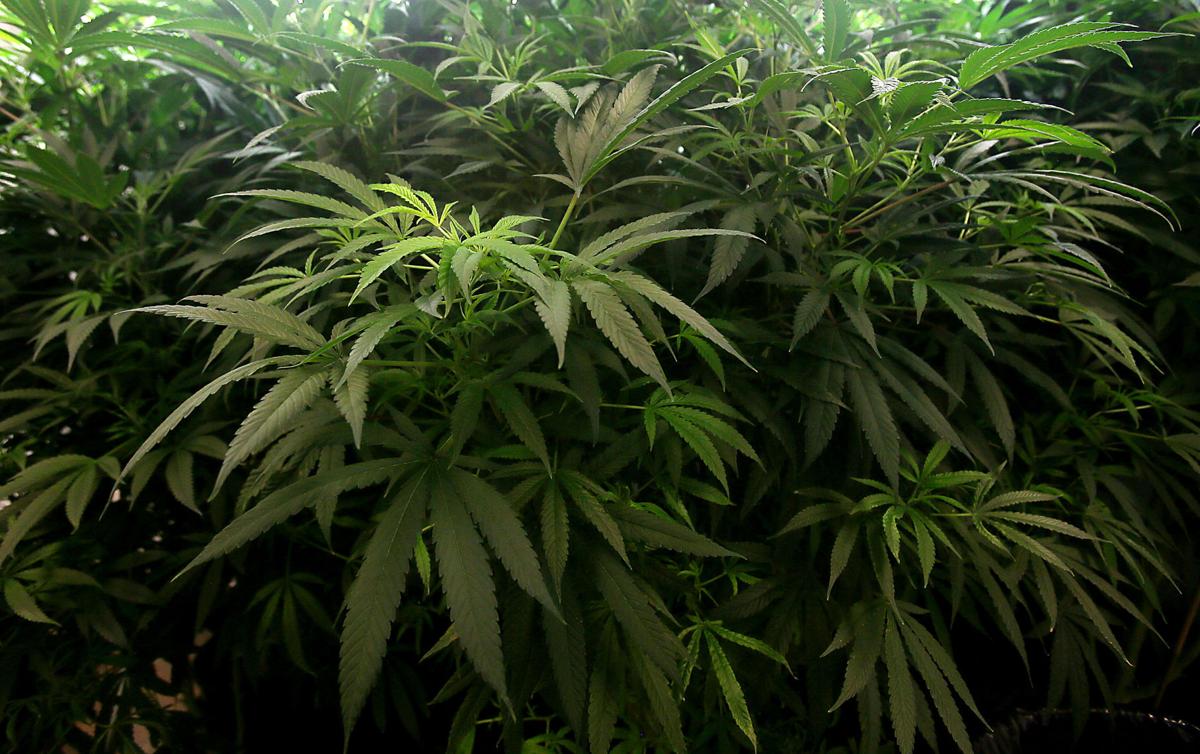PHOENIX — Arizonans who want to use marijuana recreationally would get a lot of places to buy it legally under a plan unveiled Wednesday.
The proposed legislation written by the Arizona Cannabis Chamber of Commerce seeks to have the Legislature place the measure on the 2020 ballot to allow for 230 retail outlets for the sale of the drug.
That is 100 more outlets than the current number of dispensaries that exist under the 2010 voter-approved law allowing marijuana to be sold for medical use.
The new measure also would allow for establishment of 25 “craft” licenses, aimed at helping those who want to process marijuana but are not associated with any of the big growers or retailers.
It also is designed to recognize that there are rural areas of the state without easy access to medical marijuana, said Mason Cave, a member of the advisory board of the group proposing it.
A quarter of the new licenses that would be created under the recreational marijuana proposal would be earmarked for cities and towns that do not have an existing dispensary within 25 miles.
The measure also would allow possession of up to an ounce of marijuana by anyone 21 and older.
It also envisions an excise tax — essentially a levy on top of sales taxes similar to what exists on liquor — capped at the 16% range.
It would keep in place requirements enacted by the Legislature earlier this year for testing marijuana that is offered for sale for everything from mold to pesticides. The industry would be regulated by the Department of Liquor Licenses and Control, the agency now responsible for enforcing liquor laws.
The group’s plan is to have the measure go through the Arizona Legislature to be placed on the ballot.
The move is in direct response to the Smart and Safe Act, a ballot initiative written and being pushed by major players in the state’s existing medical marijuana industry.
That measure would limit the number of licenses to sell recreational marijuana to about 170. Most would be reserved for the people who already have state medical marijuana licenses, the people who are financing the initiative.
Cave said that is unfair to others who have effectively been locked out of the Arizona market. He acknowledged that’s why much of the funding for this alternative is coming from interests, both in and out of Arizona, who want to get into the marijuana business, though he would not identify them.
He also said the initiative is too lax in its testing requirements.
Cave said the Cannabis Chamber is looking for the middle ground between those who find the initiative too restrictive, and those who would rather not legalize recreational use at all but recognize that polls have shown voters favor legalization.
That buy-in from both sides is crucial because his organization is hoping to have its plan placed on the 2020 ballot by lawmakers.
If nothing else, that saves the group the cost of hiring petition circulators to gather the 237,645 valid signatures that would be needed by July 2 to send the issue to voters as an initiative.
He conceded the result could be two competing measures on the 2020 ballot.
If both are approved, they both would take effect, with the proviso that the one with more votes takes precedence in cases of conflicting sections.
It also means that voters, being confused, could reject both, leaving Arizona without a recreational marijuana program.
Cave said he’s not concerned about that. He said Missouri voters, confronting three separate measures last year on medical marijuana, managed to sort them out and approved only one.
There is an alternative: Ask Arizona lawmakers to enact this plan — or something close to it — themselves. That would put something on the books long before next November, giving voters a chance to decide whether they like what the Legislature did or want to replace it with the initiative.
“We would love to see that happen,” Cave said of legislative enactment.
But he also pointed out that Republican Gov. Doug Ducey has strongly hinted he would veto any attempt to legalize marijuana for anything more than medical use. “I don’t think any state ever got stronger by being stoned,” the governor has said.
The initiative does contain something not currently in the proposal Cave’s group unveiled Wednesday: allowing those who have previously been convicted of possession of an ounce or less of marijuana to ask a judge to have their criminal records expunged.





